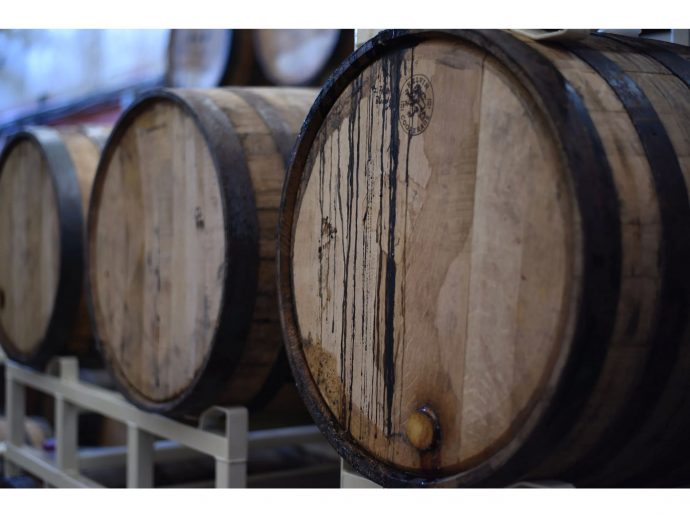Categories more
- Adventures (17)
- Arts / Collectables (15)
- Automotive (37)
- Aviation (11)
- Bath, Body, & Health (77)
- Children (6)
- Cigars / Spirits (32)
- Cuisine (16)
- Design/Architecture (22)
- Electronics (13)
- Entertainment (4)
- Event Planning (5)
- Fashion (46)
- Finance (9)
- Gifts / Misc (6)
- Home Decor (45)
- Jewelry (41)
- Pets (3)
- Philanthropy (1)
- Real Estate (16)
- Services (23)
- Sports / Golf (14)
- Vacation / Travel (59)
- Watches / Pens (15)
- Wines / Vines (24)
- Yachting / Boating (17)
Aged to Perfection: The Influence of Barrel Aging in Whisky and Other Spirits
Published
10/22/2023Whisky connoisseurs view it as more than just a drink, a liquor that has been present for more centuries than beverages like coffee. Among the processes involved in its making is barrel aging. A skill that needs patience and deep mastery of the products and techniques to make exquisite whisky.
In barrel aging, whisky is stored in wood barrels for months, years, and even decades to blend flavors perfectly. As experts say, the process is a little complex to learn, even though it's been around for over a thousand years. This article will delve mainly into what influence barrel aging has on whisky and other spirits, with a focus on the craftsmanship behind products like Inchmurrin malt whisky, where time and expertise result in exceptional flavors.
Role of Barrel Aging in Whisky
Barrel aging is past the inclusion of the whisky's flavor and scent. It is essential to reduce the ethanol amount to eliminate the scorching harshness of alcohol in the whisky.
Initially, master distillers used barrels because they were better for transit on ships instead of clay pots. The barrels did not crack, and the cervical shape made it easier for the workers to roll them. It took years before makers noticed the barrels changed the taste aroma, and the final taste was much better.
Importance of Using Barrels For the Aging Process
The barrel aging process is essential for whisky's distinctive taste and scent, and wood has a significant role in developing flavor. It gives various flavors of vanilla, caramel, and spice through a removal process.
Charring and toasting are done to the wood, ultimately affecting the flavor and scent outcome.
The climate and storage surroundings' temperature and humidity add to a whisky's flavor changes. These conditions influence the level and evolution of the taste emitted from the wood. Master distillers carefully undertake the process to ensure the full potential of the whisky is achieved.
Comparison of Barrel Aging Spirits
Only some forms of spirit need to undergo the barrel aging process. Colored spirits like whisky, scotch, and bourbon have detailed aging necessities. Water-like spirits like gin, white rum, and vodka do not require aging.
Wine ages distinctively with a slight yeast-containing nature. The other spirits age when they are kept in barrels. As for wine, it continues aging while in the bottle.
Bourbon undergoes freezing, and it will not continue aging outside the barrel. It must be aged for two years to be named straight bourbon. The same goes for rye whisky.
Single malt scotch and Irish whiskey must be aged for at least three years, and tequila for at least a year but not more than three years.
The diversity of barrel-aging spirits influences the number of times distillers can use them before being thrown away. The place is also significant in barrel aging because, as we now know, the climatic surroundings influence the whole process.
Impact of Barrel Aging on Other Spirits
Barrel aging spirits' impact is reaching the desired taste, shade, and scent needed. For the raw whisky to be purified, wooden oak barrels are used to eliminate the bitter components and increase the taste of the liquor.
The aging spirits in oak barrels are used to remove the unwanted flavors, and it also provides room for ethanol to disintegrate in charred wood and give out the smoky sweetness of the spirit. The final product is dependent on the kind of barrel used in aging.
The American White Oak and French Oak are used to construct the whiskey casks and, in the whisky aging process, to instill unique flavors. Distillers use different kinds of barrels to discover new and fulfilling tastes for the spirits.
Finally, it is usual for spirits to be barrelled in wine to increase their taste. Bourbon and rye whiskey are mostly aged in charred oak casks since charred spirit barrels modify the wood chemicals and generate new elements to be removed.
Conclusion
Barrel aging is a crucial element in whisky production, which is further distilled and made to perfection over the years. The correct compilation of wood, time, and climate turns a plain distillate into a complete and exquisite whisky. It does not matter if your preference is bourbon, scotch, or another kind of whisky; barrel aging provides the distinctiveness of each bottle.















